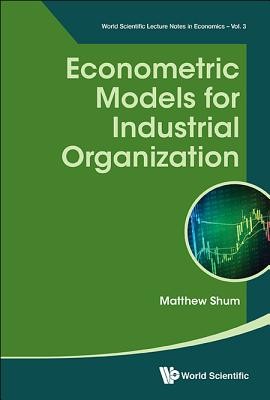
- We will send in 10–14 business days.
- Author: Matthew Shum
- Publisher: World Scientific Publishing Company
- Year: 2017
- ISBN-10: 9813209003
- ISBN-13: 9789813209008
- Format: 15 x 22.6 x 1 cm, softcover
- Language: English
- SAVE -10% with code: EXTRA
Reviews
Description
Economic Models for Industrial Organization focuses on the specification and estimation of econometric models for research in industrial organization. In recent decades, empirical work in industrial organization has moved towards dynamic and equilibrium models, involving econometric methods which have features distinct from those used in other areas of applied economics. These lecture notes, aimed for a first or second-year PhD course, motivate and explain these econometric methods, starting from simple models and building to models with the complexity observed in typical research papers. The covered topics include discrete-choice demand analysis, models of dynamic behavior and dynamic games, multiple equilibria in entry games and partial identification, and auction models.
EXTRA 10 % discount with code: EXTRA
The promotion ends in 17d.07:58:40
The discount code is valid when purchasing from 10 €. Discounts do not stack.
- Author: Matthew Shum
- Publisher: World Scientific Publishing Company
- Year: 2017
- ISBN-10: 9813209003
- ISBN-13: 9789813209008
- Format: 15 x 22.6 x 1 cm, softcover
- Language: English English
Economic Models for Industrial Organization focuses on the specification and estimation of econometric models for research in industrial organization. In recent decades, empirical work in industrial organization has moved towards dynamic and equilibrium models, involving econometric methods which have features distinct from those used in other areas of applied economics. These lecture notes, aimed for a first or second-year PhD course, motivate and explain these econometric methods, starting from simple models and building to models with the complexity observed in typical research papers. The covered topics include discrete-choice demand analysis, models of dynamic behavior and dynamic games, multiple equilibria in entry games and partial identification, and auction models.


Reviews